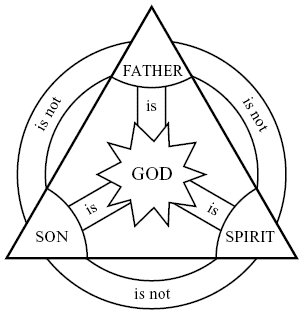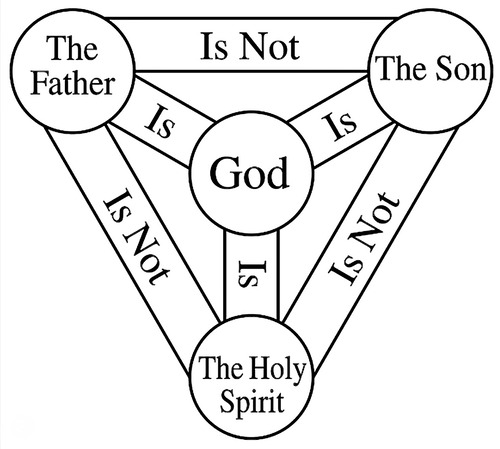Biblical and Systematic Theology: Why Do We Need Both?
TWO LENSES, ONE TRUTH
Picture this familiar scene: A seminary student sits in the library, torn between two stacks of books. On one side are commentaries offering Biblical theology. And on the other, systematic theologies offering comprehensive frameworks for understanding God and salvation. “Which do I choose?” the student wonders. “Am I supposed to be a biblical theologian or a systematic theologian?”
But this is a false choice. The Reformed tradition, at its best, approaches biblical and systematic theology not as competitors but partners in the service of God’s truth. We don’t need to choose between them—we need both.
WHAT BIBLICAL THEOLOGY BRINGS TO THE TABLE
Biblical theology traces the unfolding story of God’s redemptive work through Scripture’s historical progression. Rather than jumping immediately to doctrinal categories, it asks: “How did God progressively reveal this truth? How does this passage fit into the larger narrative of redemption?”
This approach brings irreplaceable gifts to our understanding. It reveals how the Old Testament prepares for and points to Christ, showing us every part of Scripture contributes to one magnificent story. When we see how the theme of covenant develops from Abraham through Moses to David and ultimately to Jesus, we grasp truths that isolated proof-texting cannot provide.
Biblical theology also grounds our doctrine in concrete historical and cultural contexts. It prevents us from turning Scripture into a collection of abstract principles by maintaining connection to the specific situations God’s people faced. When Paul writes about justification in Romans, biblical theology helps us understand both his Jewish background and his pastoral concerns for Gentile inclusion.
The Reformers exemplified this commitment. Calvin produced not only the Institutes but also commentaries on nearly every book of Scripture. His systematic theology emerged from, and was constantly refined by, careful exegesis. The Westminster Confession didn’t arise from philosophical speculation but from decades of biblical study by scholars committed to sola scriptura—Scripture alone.
WHAT SYSTEMATIC THEOLOGY CONTRIBUTES
Systematic theology organises Scripture’s teaching into coherent categories, addressing the human need to understand how various biblical truths relate to each other. It asks: “What does the whole Bible teach about God, humanity, salvation, and the Christian life?”
This approach provides frameworks essential for clear thinking about faith. While the Bible assumes certain truths about the Trinity, it doesn’t provide a systematic explanation of how three persons can be one God. Systematic theology, drawing from the totality of biblical revelation, helps us articulate these crucial doctrines with precision.
Systematic theology also serves as a crucial defence against error. Historical creeds and confessions represent systematic theology in action—the church’s careful work to distinguish biblical truth from attractive counterfeits. Without systematic frameworks, we’re vulnerable to proof-texting heresies that sound biblical but contradict Scripture’s overall teaching.
Perhaps most importantly for pastoral ministry, systematic theology bridges the gap between ancient text and contemporary questions. When a church member asks about suffering, for instance, pastors need more than isolated verses—they need a biblical framework that encompasses God’s sovereignty, human responsibility, the reality of evil, and the hope of redemption.
WHY WE NEED BOTH: THE REFORMED SYNTHESIS
Scripture itself models the integration we’re advocating. Paul’s letter to the Romans demonstrates both careful attention to Old Testament texts and systematic theology. He grounds his argument in specific passages while building a comprehensive case for justification by faith alone. His method is simultaneously exegetical and systematic.
The Reformed tradition has consistently embraced this both/and approach. Calvin’s genius lay not in choosing between biblical and systematic work but in allowing each to inform the other. The Westminster Standards exemplify this integration—every doctrinal statement is rooted in careful exegesis, yet the overall structure provides systematic coherence.
These approaches need each other. Biblical theology keeps systematic theology honest to the text, preventing it from imposing foreign categories on Scripture. Systematic theology helps biblical theology avoid fragmentation, ensuring individual passages are understood within the framework of all biblical revelation. Together, they guard against both reductionism and speculation.
BIBLICAL AND SYSTEMATIC THEOLOGY: PRACTICAL IMPLICATIONS
For pastors, this integration is essential for faithful preaching. Expository sermons require both careful exegesis of the text and understanding of how that text fits within systematic theological categories. A sermon on Romans 8:28 needs both historical-grammatical analysis and a robust doctrine of providence.
Seminary education must reflect this integration rather than forcing students to choose sides. They need training in both exegetical methods and doctrinal synthesis. They need professors who model how careful biblical work leads to systematic understanding, and how systematic frameworks guide exegetical practice.
Local churches benefit when both approaches flourish. Bible study groups that trace redemptive themes through Scripture complement systematic theology classes that explore the nature of God or salvation. Worship services can celebrate both God’s historical acts of redemption and his eternal attributes. Discipleship programs should cultivate both biblical literacy and theological maturity.
CONCLUSION: BIBLICAL AND SYSTEMATIC THEOLOGY
God’s truth is one, revealed progressively in Scripture and understood systematically by the church across centuries. The Bible tells one story—the story of God’s gracious redemption of His people—and that story yields coherent doctrinal truth about who God is and how He saves.
We honour neither Scripture nor the God who gave it when we create false tensions between these complementary approaches. Biblical theology without systematic reflection can become antiquarian, losing relevance for contemporary faith and practice. Systematic theology without biblical foundation can become speculative, untethered from the actual content of God’s revelation.
Consider the church at Berea, whom Luke commends for receiving Paul’s message “with all readiness of mind” while simultaneously searching “the Scriptures daily, whether those things were so” (Acts 17:11). The Bereans exemplify the integration we’re advocating—they eagerly embraced Paul’s systematic presentation of the gospel while carefully examining how his teaching aligned with the broader witness of Scripture. They didn’t choose between accepting apostolic doctrine and doing careful biblical study; they seemed to understood that faithful Christianity requires both. Their “noble” character emerged precisely from this commitment to hold systematic teaching accountable to scriptural revelation while allowing Scripture’s overall testimony to inform their doctrinal understanding.
BIBLICAL AND SYSTEMATIC THEOLOGY: RELATED FAQs
How do contemporary Reformed scholars approach the integration between biblical and systematic theology? Michael Horton advocates for a “covenant theology” that bridges biblical and systematic approaches, showing how God’s covenant promises unfold historically while maintaining doctrinal coherence. Kevin Vanhoozer promotes “canonical-linguistic theology,” arguing Scripture’s diverse literary forms require both careful exegesis and systematic integration.
- What about the “Biblical Theology Movement” of the mid-20th century—did they get it right? The Biblical Theology Movement, led by scholars such as G Ernest Wright, rightly emphasised Scripture’s historical character and progressive revelation. However, some Reformed critics argue they went too far in rejecting systematic theology altogether, leading to theological fragmentation. Contemporary Reformed scholars appreciate their insights about redemptive history while maintaining systematic reflection remains essential for doctrinal clarity and pastoral application.
- How does this debate between biblical and systematic theology affect how we read the Old Testament as Christians? Biblical theology helps us see how Old Testament passages point forward to Christ without flattening their original meaning or context. Systematic theology provides frameworks (such as covenant theology or the law/gospel distinction) that help us understand the relationship between old and new covenants. Reformed scholars like Edmund Clowney and Graeme Goldsworthy have shown how both approaches are needed to avoid either ignoring Christ in the Old Testament or reading him into every verse inappropriately.
Does this integration work differently for different genres of Scripture (narrative, poetry, epistles)? Yes, the balance shifts depending on the biblical genre, but both approaches remain necessary. Narrative passages require careful attention to their place in redemptive history (biblical theology) while also contributing to our understanding of God’s character and ways (systematic theology). Epistles like Romans already demonstrate systematic thinking but must be understood within their historical contexts and the broader biblical storyline.
- How do Reformed scholars respond to the charge that systematic theology imposes Greek philosophical categories on Hebrew Scripture? Leading Reformed theologians like John Frame and Scott Oliphint acknowledge the concern while arguing systematic theology, when properly done, derives its categories from Scripture alone rather than imposing foreign frameworks. They contend the New Testament writers themselves engaged in systematic reflection (particularly Paul in Romans) and that careful philosophical thinking can serve biblical truth when Scripture remains the ultimate authority. The key is ensuring our systematic categories emerge from exegetical work rather than preceding it.
- What role does church history play in bridging biblical and systematic theology? Church history demonstrates how faithful Christians have integrated both approaches across different eras and challenges. Reformed scholars like Carl Trueman and Ryan Reeves show how historical theology reveals the development of biblical interpretation and systematic formulation over time. The creeds and confessions represent the church’s best attempts to synthesise biblical exegesis with systematic coherence, providing both models and warnings for contemporary theologians.
How should this integration affect seminary curriculum and pastoral training? Reformed theological educators increasingly advocate for curricula that integrate rather than compartmentalise these disciplines. Professors such as Sinclair Ferguson and Derek Thomas model teaching that moves fluidly between exegetical insights and systematic implications within single courses. Most Reformed seminaries now require students to demonstrate competency in both biblical languages and systematic theology, while encouraging thesis projects that bridge these areas rather than treating them as separate specialisations.
BIBLICAL AND SYSTEMATIC THEOLOGY: OUR RELATED POSTS
Editor's Pick

Paul’s Mandate for Men: Headship Or Servant Leadership? Or Both?
Modern Christianity has fallen into a trap. We've created an either/or battle between "headship" and "servant leadership," as if these [...]

Should We Stop Using Male Pronouns for God? Why Do We Say No?
A friend of ours arrived eagerly at his first theology class in seminary. But he quickly discovered something troubling: the [...]

Did Old Testament Law Force Women to Marry their Rapists?
**Editor’s Note: This post is part of our series, ‘Satan’s Lies: Common Deceptions in the Church Today’… Viral misinformation abounds [...]

From Danvers To Nashville: Two Statements, One Biblical Vision
30 years separate the Danvers Statement on Biblical Manhood and Womanhood (1987) and the Nashville Statement on Human Sexuality (2017). [...]

The Nashville Statement: Why Affirm It Despite Media Backlash?
WHY DO REFORMED CHRISTIANS STAND BY THIS STATEMENT ON MARRIAGE AND GENDER? When the Nashville Statement was released in 2017, [...]

Who Is Belial? Solving The 2 Corinthians 6:15 Mystery
Belial: This name from the pages of Scripture chills the soul. Who is this mysterious figure Paul invokes in 2 [...]

Celibacy Or Castration: What Jesus Really Means in Matthew 19:12
One of Scripture's most shocking misinterpretations led theologian Origen to castrate himself in the third century. His tragic mistake? Taking [...]

Philippians 4:13: Did Paul Really Mean We Can Do ALL Things?
"I can do all things through Christ who strengthens me." It's on gym walls, graduation cards, and motivational posters everywhere. [...]

The Ordinary Means of Grace: Why Are They Indispensable?
ORDINARY MEANS FOR EXTRAORDINARY TRANSFORMATION What if God's most powerful work in believers' lives happens through the most ordinary activities? [...]

Is the Bible God’s Word? Or Does It Only Contain God’s Word?
The authority of Scripture stands at the crossroads of modern Christianity. While some argue the Bible merely contains God’s Word [...]
SUPPORT US:
Feel the Holy Spirit's gentle nudge to partner with us?
Donate Online:
Account Name: TRUTHS TO DIE FOR FOUNDATION
Account Number: 10243565459
Bank IFSC: IDFB0043391
Bank Name: IDFC FIRST BANK






